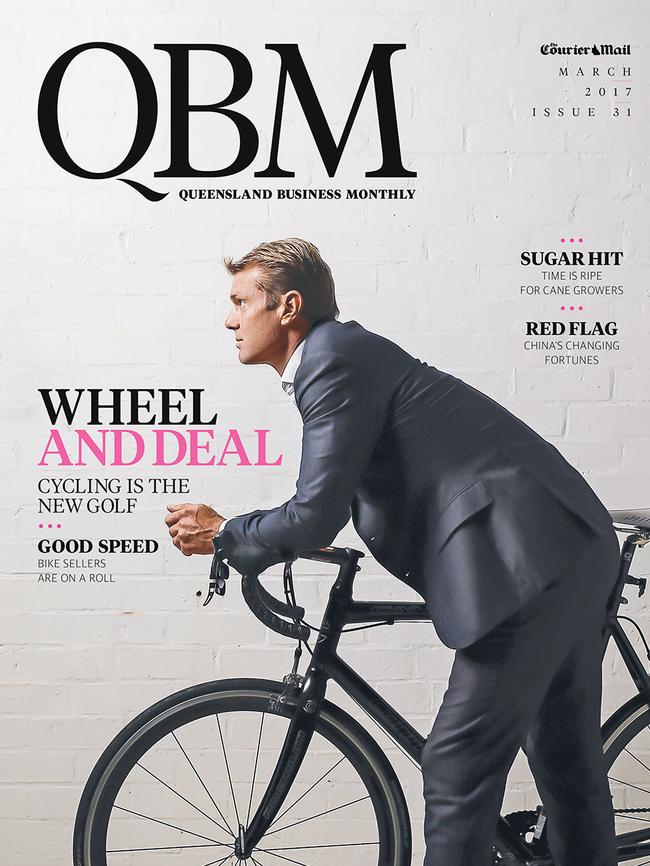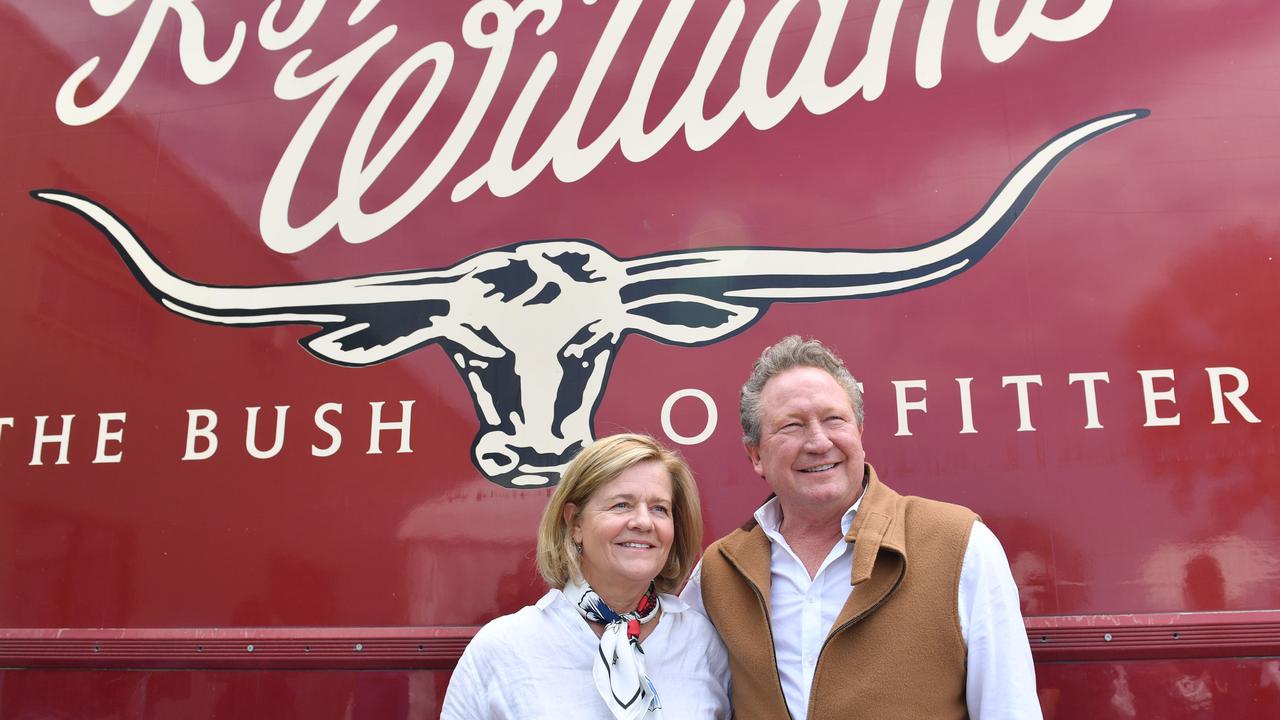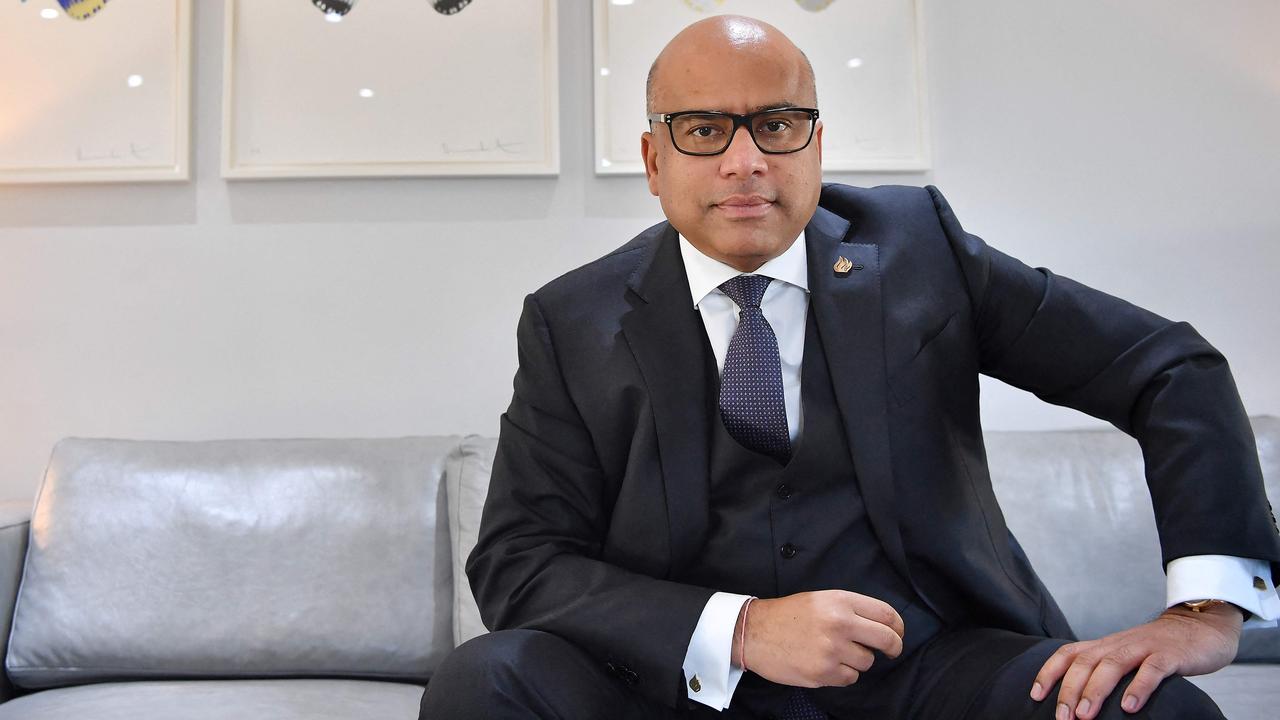Bike sellers 99 Bikes, Mountain Bikes Direct, Planet Cycles are on a roll in the bike business
99 Bikes owner Matt Turner was ambitious from the start... but he knew there was money to be made with the growing numbers of bicycle lovers from the Lycra brigades to hipsters on vintage bikes.
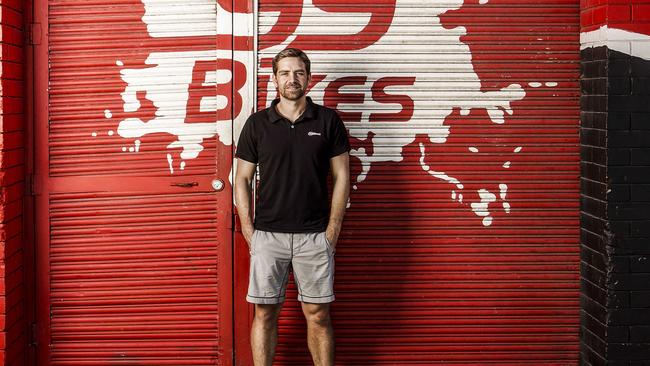
QLD Business
Don't miss out on the headlines from QLD Business. Followed categories will be added to My News.
LYCRA brigades at coffee shops, hipsters on vintage bikes riding to farmers’ markets and families on the river paths – it sometimes feels like everyone is trading in four wheels for two. Cycling retailers know there has never been a more popular time to ride, thanks to a perfect storm
of fitness, environmental and leisure factors driving sales skyward.
But while demand continues to rise, the retail landscape
is changing, with traditional bricks and mortar bike stores facing increased challenges from local and foreign online competitors.
The bicycle retailing and repair sector is estimated to be worth $773.4 million in Australia, with an average annual growth of 6.3 per cent since 2012, yet compared to other sectors it is a highly fragmented industry.
While hundreds of shops are open for business each week in Australia, the majority consist of a single, stand-alone business.
Queensland company 99 Bikes is one of the exceptions.
When Matt Turner opened the first 99 Bikes store in Milton in 2007, there was no big player in the cycling retail game.
Backed by his father Graham Turner’s ASX-listed Flight Centre as a major investor, his ambitious goal of selling 99 bikes every day was stamped in the name, though Turner freely admits it took longer to get there than he expected, hitting the magic number about 2015.
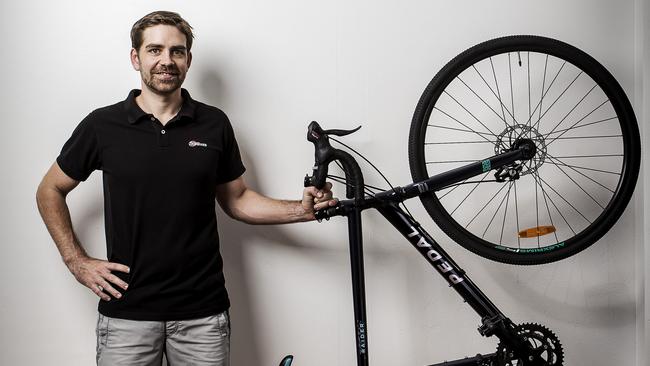
But a decade after it launched, 99 Bikes – which now sells about 150 bikes per day – has established itself as a leader in the industry.
Turner, who is the company’s founder and general manager, says while 99 Bikes does sell online, the main focus is on his 29 stores, which account for more than 90 per cent of the business. It’s also why he has extensive expansion plans, aiming for 56 stores by 2020.
“We’ve tried online but we found it was really expensive, so we’ve stuck to what is more profitable,” he says, explaining the additional infrastructure and operating costs were too high.
“A huge part of our business is having the right people in the stores. About 75 per cent of our transactions are repeat customers.”
Keeping a close eye on trends has been key to his success, Turner says.
“We definitely notice products come in and out of trend,” he says. “At the moment lady vintage bikes are very popular. Mountain bikes have also been rising in popularity over the past 12 months. Before that, it was road bikes which we were seeing the most growth in.
“Technology changes certainly drive part of the business. Electric bikes now account for about 1 per cent of the business, but they are still relatively new and we expect that to be doubling every few months.”
Yet the industry is facing significant headwinds with increasing fierce competition from local and foreign websites.
IBISWorld’s Tommy Wu says while the industry has projected annual growth of 4.8 per cent over the next five years – taking it to an estimated worth of $976.8 million – online retailers have a significant advantage, with low overheads allowing them to offer parts and products at lower prices. Some relief is on the horizon with the scrapping of the $1000 GST-free threshold in July, meaning customers will pay the tax on all overseas purchases.
“It will level the playing field for bricks-and-mortar stores to do better against foreign retailers,” Wu says.
As online and in-store compete, one key factor where bricks-and-mortar stores have a significant edge is the kind of customer that is now attracted to cycling, Wu says.
“Consumers aged 34-55 make up two-thirds of the industry in terms of revenue,” he says. “They tend to buy the more expensive items and they usually like to go in-store and look at the bike they want to purchase. “Having a knowledgeable staff member is beneficial here. When people are making big-ticket purchases a lot of people feel more secure in seeing it for themselves.
“Generally they also have the highest discretional income and are more happy to spend it.”
Another factor contributing to the growth of the industry has been local council and state government infrastructure, according to Wu.
“There’s been a trend of people taking up cycling as a form of transport,” he says.
“Cycling infrastructure, such as dedicated bike paths and lanes, increases the appeal of cycling.”
According to the Brisbane City Council, CityCycle notched up 44,000 trips in January, an increase of 43 per cent on 2015.
Public and Active Transport chairman Cr Adrian Schrinner says the council delivered more than 100 bikeways projects between 2012 and 2016, including upgrades and cycle paths. An additional $100 million will be invested over the next four years.
Turner says he expects to see the effect of long-term infrastructure impact more significantly over the next five to 10 years.
“There are quite a few different reasons (the industry is growing),” he says. “Certainly people are using cycling as a form of transport to get around. The other big one is fitness, using it as a way to keep fit, while the other factor is leisure.
“We do have a lot of customers who ride as a family activity, to spend time with each other. Only a small percentage of our customers are what some people might think of when they think of cycling – Lycra-wearing, corporate riders. There’s a pretty wide range of people who are interested in riding bikes, for a lot of reasons, and a lot of them never wear Lycra.”
Turner says cycling events directly translate into a spike in sales as “it tends to get people motivated to get out and ride”.
But not everyone is navigating the same route – and it’s about much more than just the bikes.
About 23 per cent of the industry’s revenue comes from bicycle parts and accessories. It is in this growing category that online stores make their mark.
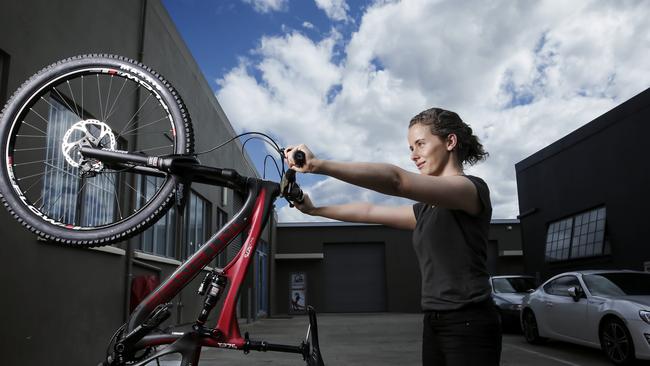
Jen Geale, along with her husband Michael and business partners Tim and Mel McCullough, is one of the co-founders of Mountain Bikes Direct, a Gold Coast-based online store which focuses on parts and accessories.
Michael and Tim previously owned and operated a traditional shopfront, but the team saw a huge opportunity in an online-only model in a niche part of the market.
“Increasingly you have to find ways to do something to stand out among your competitors, you have to offer something unique,” says Geale, who was a Queensland Young Business Women’s Award finalist in 2016.
“For us, that was being mountain bike specific, that was a strategic decision for us and hopefully one that will continue to give us an edge into the future.”
Geale says that in the past 12 months they have averaged 50 per cent growth without spending a cent on advertising or acquiring new customers.
“People are finding us through word of mouth, or Google, such as when they’re looking for parts.
“Generally most people want to buy in Australia if they can and if it’s not too much more expensive.”
But Geale acknowledges the challenges in the online model, particularly when it comes to parts of the business traditionally reliant on face-to-face service, such as repairs.
“The repair side of the business is what can give them the advantage over online retailers,” she says.
“Bricks-and-mortar stores allow the staff to see the parts, check out a bike frame and talk to staff.
“But online you can sell at a different price point than you can in-store and offer a different level of service.
“Certain riders want the retail experience, but many don’t need that same level of service, and want to be able to get the product all around Australia.”
For independent store Planet Cycles, the combination of embracing cutting-edge technology and providing impeccable customer service is essential.
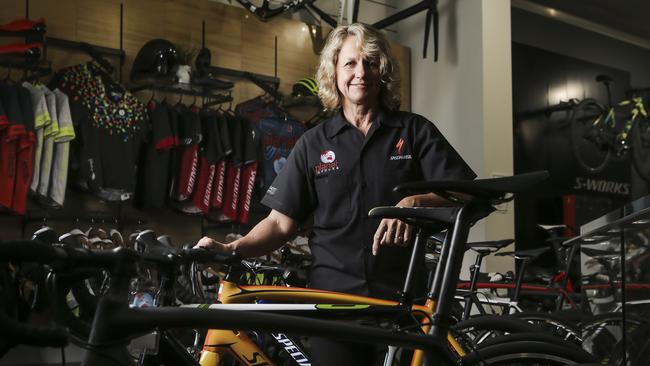
Owners Mark and Bronwyn Victor established their Woolloongabba store in 1998. Mark previously operated Victor Cycles Sports.
Bronwyn Victor (pictured above) says that while the industry has faced a lot of changes over the past two decades, other things remain a top priority.
“One of the challenges of being in retail is to keep ahead of the changes and always having a vigilant look at what the market is doing,” she says.
The success of e-bikes in Europe – which now account for 50 per cent of sales in many overseas retailers – is a market which she says will be crucial in the coming years.
“E-bikes are perfect for Brisbane,” Victor says.
“Our bike paths are always improving, we have good weather all year round, you get some exercise and fresh air but you can still wear your work clothes on the commute.
“There is also the eco-friendliness which is appealing. In a perfect world you would charge your bike overnight on solar power.”
But it isn’t just electric bikes which can help establish store growth in the future.
Victor sees the advance of technology in bike compartments as ensuring the viability of bike mechanics and repair jobs, as more people turn to the experts for upkeep.
“All the major brands now have electronic parts; they’re becoming more computerised and more technical,” she says.
“It’s similar to the way cars advanced, and now people mostly need experts to service their cars.”
With 20 staff, including 14 fulltime, Victor says customer relationships are not only good business but essential to the long-term growth and sustainability of a store.
“The bike industry is really unique in that it’s so important that the customer gets the right product, the right size,” she says.
“A lot of customers don’t know what that might be until they talk to us and we can help them.
“That’s something that the internet can’t do.
“Our customers are a real mixture and what we do see is the adult children of long-time customers coming in, getting multi-generation customers in the store.
“We’re consistently increasing our growth. If you’re not going backwards in retail that’s a win.”
This article appears in the March edition of Queensland Business Monthly inside The Courier-Mail on Friday February 24.
